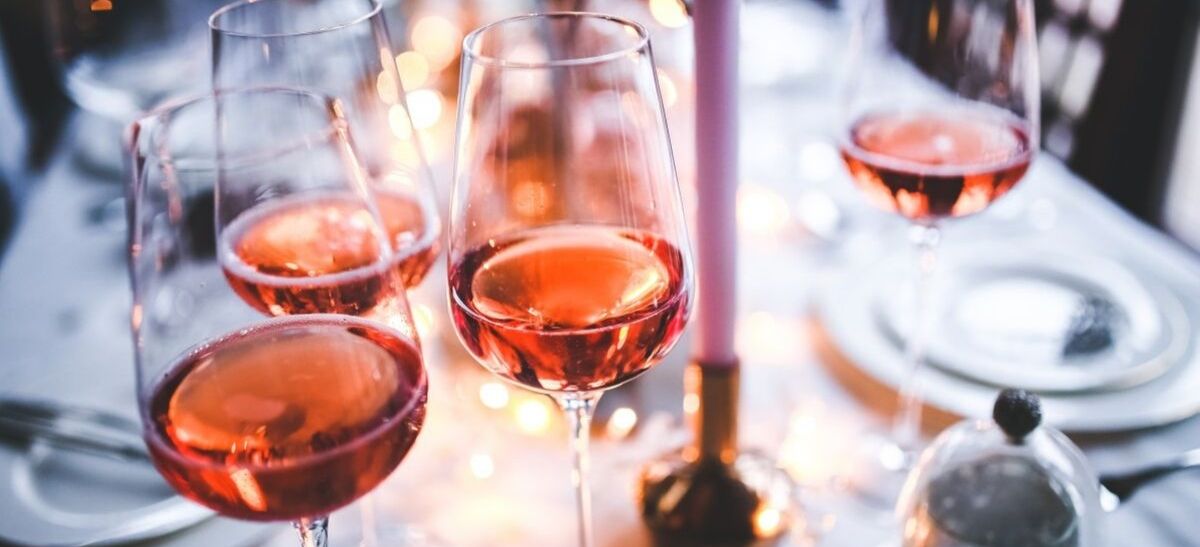Early Bird
Deadline
January 31, 2026
Judging
Date
May 18, 2026
Winners
Announced
June 10, 2026

Orange wine is both new and very, very old. Its history dates back thousands of years, but it has only come to prominence in the English-speaking world in the past decade. The term describes the colour of the wine, and how it was made: by treating white grapes as if they were red, and leaving the grapes in contact with their skins during fermentation.
No-one knows more about this than Simon Woolf, author of the award-winning primer on orange wines, Amber Revolution. There is a lot of confusion about the subject but it’s actually very simple, he says. “Orange wine is a wine-making technique,” he says. “It's quite simply a wine made from white grapes that have been fermented with their skins.
“This works in the same paradigm as the way that we define white, red and rosé wine. The great thing about it is that it includes a huge amount of variety: you can have a wine where the skins were part of the fermentation for maybe just three, four, five days and then you can have one where the skins are in contact with everything else for months.”
“Orange wine has piggybacked on to the natural wine resurgence. Nowadays people are really fascinated by the idea of small scale production and by the idea of wine-making as something that's closely linked to tradition and location, terroir, sense of place.
“I think orange wine really fits very well into that because it's a very, very old, traditional, kind of no-technology way of making wine. The reason a lot of natural winemakers have flocked to the technique is that it's a great way to work with white grapes when you don't want to use any interventions, or very few interventions.”
“A huge amount, to the point where a lot of people conflate the two. I try to be clear about the differences. Orange wine, to me, is the definition of a wine-making technique whereas natural wine is a philosophy that can take in any style of wine.
“But I think the reason that the two have overlapped to such a great degree is that when you make skin-fermented white wines, the end result can be quite challenging and quite unfamiliar for someone who is expecting a conventional white wine. So the kind of winemaker that wants to make orange wine tends to be someone who is maybe edging towards a more radical style, or certainly more on the natural, minimal intervention end of things.
“There's a lot! There's probably far more than I've actually come across, but some of the ones that I particularly enjoy are AmByth [in California], there’s Channing's Daughters in Long Island. They actually make seven or eight different orange wines, I think, and have done for a while. Donkey and Goat is another small winery in California that always impressed me a great deal. Again, they make several orange wines. Oh yes, Deirdre Heekin and her winery, La Garagista in Vermont. She makes fantastic orange wines from hybrid varieties that were specially developed for their very cold climate.”
“I think it's definitely, definitely something in its favor, because these are typically wines that bridge the gap between white and red. I see it as having the best of all worlds. You often have this sensation of freshness and acidity that a lot of people enjoy with white wine and yet you can have a much greater range of texture and structure than you would normally expect from a red wine. That can be not only extremely food-friendly, but also extremely versatile.
So a lot of situations in a restaurant where you have a group of people all having different dishes for different courses, or you have some things that are typically a nightmare for sommeliers to deal with - asparagus, very salty or spicy food - often orange wines, particularly aromatic ones, seem to work very well.”
“To me the world of orange wine is every bit as broad and varied as the world of white, red or rosé. People should see it just as a fourth wine color. It is just that. For an extraordinary period of 50 years or more, we simply forgot about 25 per cent of the possibilities in wine. We forgot that you could actually also use the skins of white grapes. And when you see it like that, then you realise actually it is kind of crazy that we did that. And also, well this is just a playground where there are many more flavors and aromas to be discovered and enjoyed. It really can be any style.”
Enter your Wines now and get in front of top Sommeliers, Wine Directors, and On-Premise Wine Buyers of USA.
